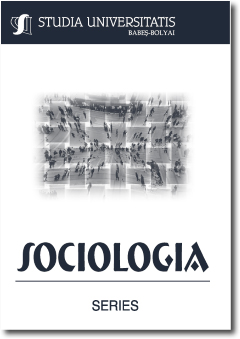CHANGING VIEWS OF THE PAST: STRUCTURAL AND CONTEXTUAL DETERMINANTS OF RETROSPECTIVE ASSESSMENT OF SOCIALISM
CHANGING VIEWS OF THE PAST: STRUCTURAL AND CONTEXTUAL DETERMINANTS OF RETROSPECTIVE ASSESSMENT OF SOCIALISM
Author(s): Irina Tomescu-DubrowSubject(s): Social Sciences
Published by: Studia Universitatis Babes-Bolyai
Keywords: retrospective assessment of socialism; public opinion change; social class; political biography; Polish Panel Survey POLPAN; qualitative data.
Summary/Abstract: This project builds on my earlier work on “Structural Determinants and Retrospective Assessment of Socialism” (2007 in Slomczynski and Marquart-Pyat, eds.), where I analyzed for the period 1989-2003, whether Poles’ views of the past and changes thereof depend on their social position before and after 1989. Here, I extend the scope of this research along three lines: first, I bring in new data from the 2008 Polish Panel Survey, POLPAN; second, I include the relation between contextual determinants – individuals’ political biographies – and subjective assessment of socialism; third, I complement the quantitative part of my analyses with in-depth interview data. I conceptualize evaluations of the past in terms of the degree of positive/negative assessment of the socialist system. This specific reference point is essential for my study since “socialist system” represents an abandoned regime. Thus, change in opinion about socialism is not caused by the change in its object; it might be caused only by the change in the subject – a person and their conditions. Findings support the rational action perspective that assessment of socialism is based on individual interests that are well grounded in peoples’ position in the social structure. In Poland, ‘winners’ of the transition such as mangers and experts who prior to 1989 used to appraise socialism more positively than any other groups, denounce the past as they recognize, and are able to take advantage of, the opportunities that post-communism opened. ‘Losers’ of the transition – manual workers and farmers – who used to be most outspoken against the socialist rule while it was in power, become first in evaluating the past positively, as they bear an unequal share of the transition costs. Individuals’ political experiences of the Communist Party also shape memories of socialism.
Journal: Studia Universitatis Babes-Bolyai - Sociologia
- Issue Year: 56/2011
- Issue No: 2
- Page Range: 75-90
- Page Count: 16
- Language: English

